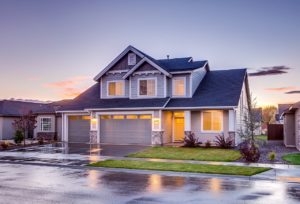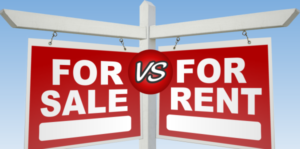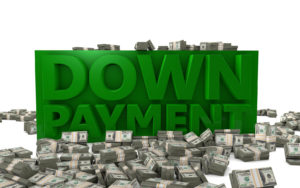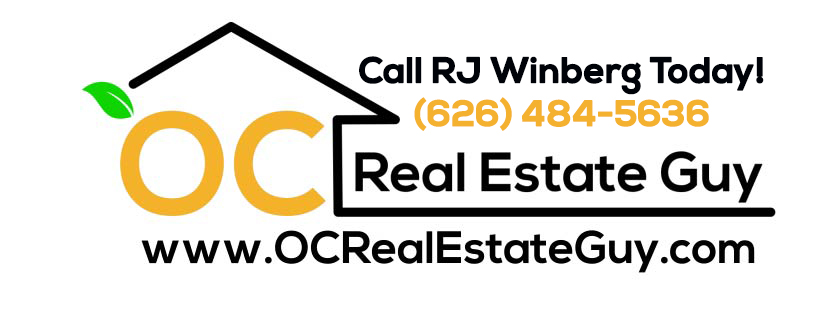What is a Land Lease
 If you have been looking at Orange County homes online, you have probably come across some deals that just looked too good to be true. I get multiple calls a week from people who are eager to jump on what they think is a great deal until I explain to them “the catch”, that this property is on a land lease.
If you have been looking at Orange County homes online, you have probably come across some deals that just looked too good to be true. I get multiple calls a week from people who are eager to jump on what they think is a great deal until I explain to them “the catch”, that this property is on a land lease.
So, what is a land lease?
A land lease is pretty much exactly what it sounds like. Rather than owning the land this home sits on, you lease it.
When you buy a typical home, you are purchasing both the plot of land that the home sits on and the structure of the home together. The structure is technically an “improvement” on the land, and here in Orange County it’s the land that holds most of the property value.
So, when you see a home that is prices much lower than comparable properties in the area, you are most likely looking at a property that is on a land lease. The price is lower simply because it does not include the land value.
What are the Pros and Cons of a Land Lease?
As far as I am concerned, there is only one advantage to a property on a land lease: the purchase price is lower. At first, a lower purchase price sounds like a pretty great thing, but there is more to the story.
If you are financing the property, then you likely will not come out all that far ahead by purchasing something on a land lease. Let’s say we found two homes that are identical in every way except that one of them is a typical property, while the other is on a land lease. In this example we’ll say the land lease home is $325,000 and the typical home is $600,000.
Let’s also say the mortgage payment plus HOA for the $600k home is $3,900, and for the $325k home it’s $2,250. There is also the cost of the land lease, let’s say it’s $9,500 per year. That’s an additional $792 per month, which brings the total monthly cost of the land lease home to $3,042, about $858 dollars less than the typical home.
Does it cost less on a monthly basis to buy the land lease? Yes, but not much less. The purchase price of the typical home is almost twice as high as the land lease home, but the payment difference is only $852. That’s a monthly cost difference of less than 25%, for a home that is almost twice as valuable.
Other Considerations
 I believe in real estate as an investment, which is why I don’t like to encourage people to buy property on a land lease. Owning a house, but not the land is the opposite of what you want to do in real estate.
I believe in real estate as an investment, which is why I don’t like to encourage people to buy property on a land lease. Owning a house, but not the land is the opposite of what you want to do in real estate.
Keep in mind, one of the big advantages to being a renter rather than a homeowner is you don’t have to worry about maintenance. However, when you own a house on a land lease… You still OWN THE HOUSE, which means you are responsible for the maintenance.
On the other hand, one of the big advantages to being a homeowner rather than a renter is that you get to build equity as the property appreciates in value. However, the most valuable part of a property is the land, not the structure. In a land lease, you don’t own the land which is where most of the appreciation would come from.
Another advantage of typical homeownership that you “kind of” don’t get with a land lease is that you eventually get to pay it off. When you pay off your home, you will drastically reduce your housing cost because you will only have to pay property taxes and HOA fees. However, with a land lease, once you’ve paid off the mortgage you still have to pay the HOA, some property tax, but worst of all that giant land lease rental fee.
To sum it all up, in my opinion land leases are not a good deal for most people. You essentially get all the disadvantages of both home ownership and renting, while reaping the advantages of neither.
There are Caveats

There are, of course advantages for some people. In Orange County, and most of California for that matter, you will almost always be able to rent a bigger house than you could buy for the same amount of money. This does not really pan out over the long term, but it is true in the short term. So, if you need space and your budget just isn’t there, then considering a land lease might be for you.
Also, if your monthly budget is smaller, but you happen to have just come into a windfall of cash, a land lease might make sense. You can use the cash to purchase the home so you won’t need to carry a mortgage payment. Then all you need to budget for is the HOA and land lease costs. However, I suspect if you applied that money toward a down payment, you could probably find yourself with an even lower monthly housing cost on a typical home.
What Happens When a Land Lease Expires?
Just like any other kind of lease, it is important to read the agreement and make sure you understand all the terms. Some land leases renew every month, every year, or even every 99 years. What happens at the end of the lease may vary quite a bit from one property to another.
Mobile home parks tend to renew on an annual or monthly basis. Sometimes the rent doesn’t change, but sometimes it goes up. I have seen some communities that have an annual cap on the amount that the rent can be raised by. For example, the starting rent might be $1,200 with a 5% annual cap. This means that next year it could be raised, but it won’t go any higher than $1,260. Some parks tie the rent increases to the Cost of Living Index, or some other published number. However, some parks have no cap. In this scenario the landlord is free to raise it to whatever level he believes to be the fair market price.
Long term land leases can vary substantially from one property to another. Sometimes there is no agreement in place as to what happens at the end of the lease. Although unlikely, it is possible that the landowner may decide not to renew the lease and effectively force the homeowners(tenants) to leave. Although, the more likely outcome is simply a negotiation over what the new lease amount will be as they renew the lease.
Other long-term land leases may have pre-determined amounts by which the lease can go up, or use some kind of index similar to the mobile home park example above. Some leases may require the landowner and tenant to renew while not putting any limitation in place as to what the new rate will be. This way, the parties are tied to each other for the next several years (or decades, depending on the lease), but the amount of the new lease is very much open for negotiation.
If you plan on staying in your property beyond the end date of the current lease, the most important thing is to make sure you understand your lease agreement. Make sure you understand what can happen, or what is supposed to happen at the end of your lease.
